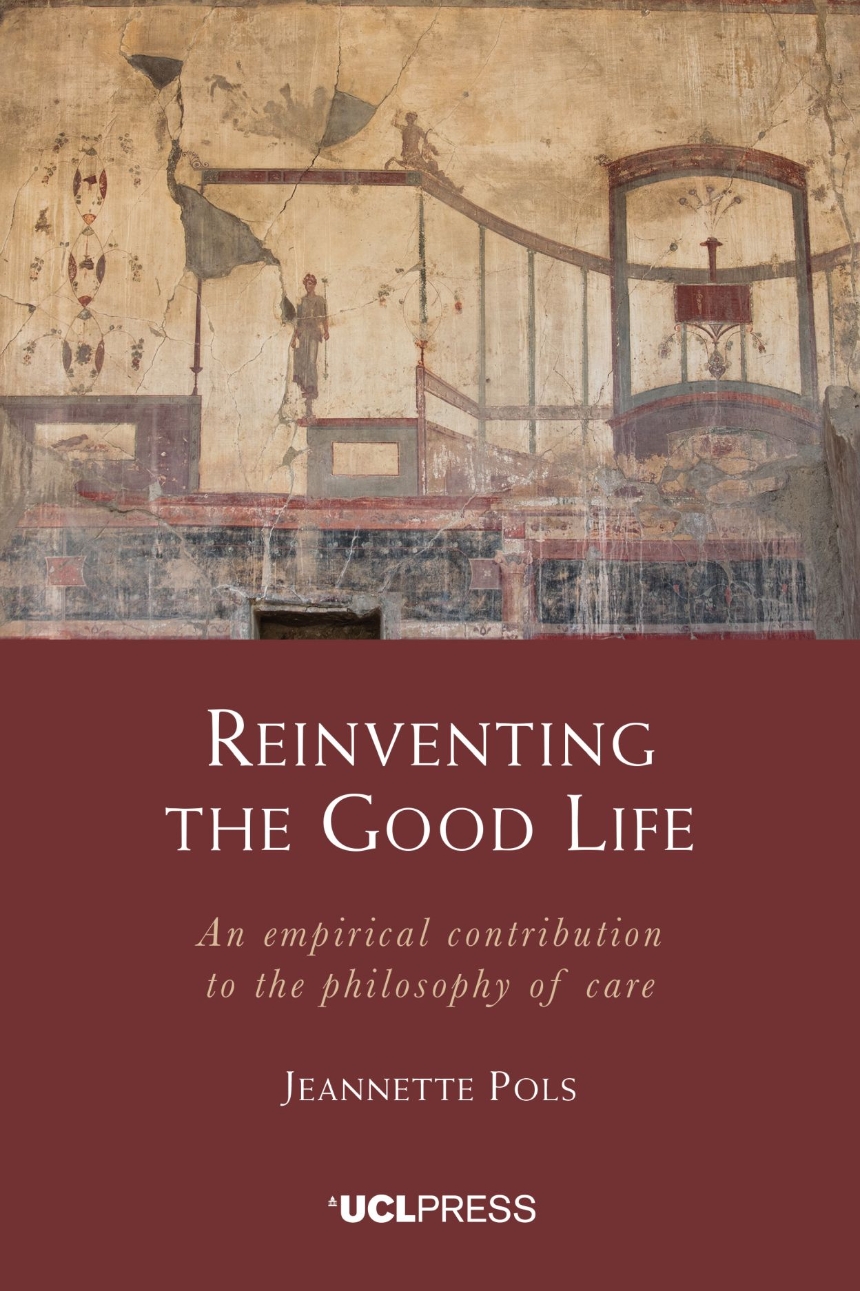9781800086036
9781800086043
Distributed for UCL Press
Reinventing the Good Life
An Empirical Contribution to the Philosophy of Care
An analytical exploration of what it means to live a good life.
Ever since Adam Smith’s musings on “the invisible hand” became more famous than his work on moral sentiments, social theorists started to pay less attention to everyday ethics and aesthetics. Smith’s metaphor of the invisible hand posits that social outcomes emerge by dint of the behaviors of individuals rather than their intentions or virtues.
Modernist and scientific approaches to determining the common good or good forms of governance have increasingly relied on techniques of generalization, rationalization, and universalization. Everyday ethics and aesthetics—and recently also matters of truth—came to be regarded as individual matters of taste. This shift, however, has meant that we no longer comprehend why and how people display a deep concern with everyday life values in their social practices. People continue to enact these values and live by them while academics lack the vocabulary and methods to grasp them.
By reconstructing the history of ideas about everyday-life values, and by analyzing the role of such values in contemporary care practices for patients with chronic disease in the Netherlands, Reinventing the Good Life seeks to explore new ways to study the values of everyday life, particularly in situations where the achievement of a clear-cut or uniform good is unlikely. The book presents a practice-based epistemology and methodology for studying everyday care practices and supporting their goodness. This analytical approach ultimately aims to generate ideas that will allow us to relate in more imaginative ways to the many pressing concerns that we are forced to live with today.
Ever since Adam Smith’s musings on “the invisible hand” became more famous than his work on moral sentiments, social theorists started to pay less attention to everyday ethics and aesthetics. Smith’s metaphor of the invisible hand posits that social outcomes emerge by dint of the behaviors of individuals rather than their intentions or virtues.
Modernist and scientific approaches to determining the common good or good forms of governance have increasingly relied on techniques of generalization, rationalization, and universalization. Everyday ethics and aesthetics—and recently also matters of truth—came to be regarded as individual matters of taste. This shift, however, has meant that we no longer comprehend why and how people display a deep concern with everyday life values in their social practices. People continue to enact these values and live by them while academics lack the vocabulary and methods to grasp them.
By reconstructing the history of ideas about everyday-life values, and by analyzing the role of such values in contemporary care practices for patients with chronic disease in the Netherlands, Reinventing the Good Life seeks to explore new ways to study the values of everyday life, particularly in situations where the achievement of a clear-cut or uniform good is unlikely. The book presents a practice-based epistemology and methodology for studying everyday care practices and supporting their goodness. This analytical approach ultimately aims to generate ideas that will allow us to relate in more imaginative ways to the many pressing concerns that we are forced to live with today.
Table of Contents
List of tables Preface 1 Introduction 2 Methodological notes to exploring the good life Part I: About the values of everyday life, their disappearance from social theory, and their underground life in care practices 3 Dignity: Principles and everyday values – About the moral-aesthetic practices of caregivers 4 The end of morality: Adam Smith and the taming of the passions 5 The principle of autonomy in care for people with learning disabilities 6 Life in the salons: Or citizens against aesthetics Part II: Conceptualising the good life 7 Aesthetic values as social values: Women losing their hair due to chemotherapy 8 How good is the good life? Foucault’s archaeological reading of the cynics 9 The self as a practice of worth: About social organisation through motivation Part III: Researching the good life 10 ‘Quality of life’ and its relation to the values of everyday life: Living with ALS and a feeding tube 11 The good life in research: Petrarch’s research as a practice of letter writing 12 Towards research practices for studying the values of everyday life 13 Conclusions: Reinventing the good life for the study of care practices Acknowledgements Bibliography Index

